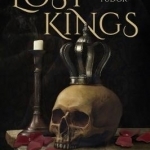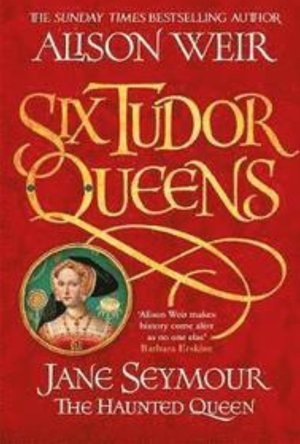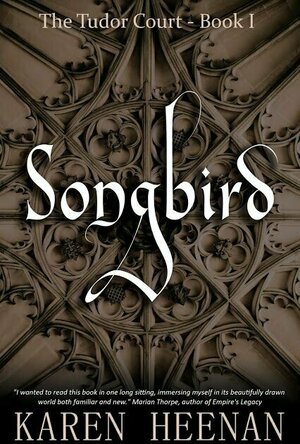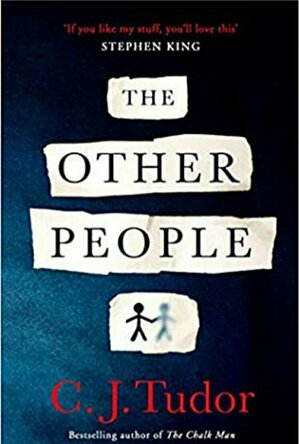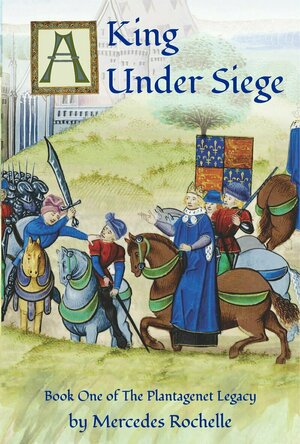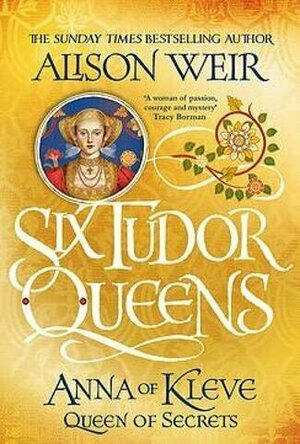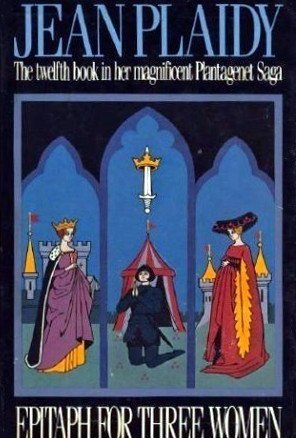Search
Search results
Deborah (162 KP) rated Bosworth Field and the Wars of the Roses in Books
Dec 21, 2018
For starters, the book is entitled Bosworth Field & the Wars of the Roses. Discussion of Bosworth is pretty much restricted to one short chapter and about the first third of the book is taken up with an over-detailed account of the events leading up to the Wars of the Roses; if Rowse is concerned about 'Wars of the Roses' being a misnomer, perhaps he should look to his own title! Yes, the events from the disposition of Richard II in 1399 and the usurpation of his throne by Bolingbroke do have an impact on later events, but a third of the book? Do we really need to know the ins and outs of Sir John Oldcastle's Lollard leanings - I fail to see how this is relevant.
Rowse's chapter on Shakespeare must be at least as long, if not longer, than his chapter on Bosworth. The fact that he obviously sincerely believes that one can gain a credible understanding of history from Shakespeare cycle of plays was almost enough to make me drop the book in astonishment! How can one take him seriously?!
He is also ready to give every credit to the supposed work of More. Even here he falls down by claiming that the bodies of the 'princes in the tower' were discovered in the exact place More said! If you read this work you'll find that the opposite is true - they are in the exact place More said they were NOT! The fact that there isn't a shred of evidence that anyone killed the two princes is evidently a small matter to Rowse. He mentions the great turncoat, Sir William Stanley (at this point step-uncle to Henry Tudor) being executed s a result of the Perkin Warbeck debacle, but fails to mention that Sir William is imputed to have said that if Warbeck really was Richard of York, he would not fight against him. Of course he doesn't mention this - he has to keep reminding us that EVERYONE believed Richard III guilty! Really, a credible historian should not pick and choose their facts - something Alison Weir is also very fond of doing.
Another point is that he is quite happy to accept that Katherine of Valois really did marry Owen Tudor, but cannot countenance the much more credible suggestion that Edward IV was married to Eleanor Butler (nee Talbot), who is not even mentioned. He harps on about the morality and piety of the Lancastrians (despite the Beauforts being conceived in double adultery - further hypocrisy) but when Richard III founds a chantry or offers some concession to a religious house that Rowse concludes it much be down to his uneasy concience.
So, overall, not a book I can recommend in the least. He may try to convince us that his unbending traditionalist view is 'sensible' and 'common sense' but anyone with a little knowledge of the subject will see it as laughably absurd and highly prejudiced.
Rowse's chapter on Shakespeare must be at least as long, if not longer, than his chapter on Bosworth. The fact that he obviously sincerely believes that one can gain a credible understanding of history from Shakespeare cycle of plays was almost enough to make me drop the book in astonishment! How can one take him seriously?!
He is also ready to give every credit to the supposed work of More. Even here he falls down by claiming that the bodies of the 'princes in the tower' were discovered in the exact place More said! If you read this work you'll find that the opposite is true - they are in the exact place More said they were NOT! The fact that there isn't a shred of evidence that anyone killed the two princes is evidently a small matter to Rowse. He mentions the great turncoat, Sir William Stanley (at this point step-uncle to Henry Tudor) being executed s a result of the Perkin Warbeck debacle, but fails to mention that Sir William is imputed to have said that if Warbeck really was Richard of York, he would not fight against him. Of course he doesn't mention this - he has to keep reminding us that EVERYONE believed Richard III guilty! Really, a credible historian should not pick and choose their facts - something Alison Weir is also very fond of doing.
Another point is that he is quite happy to accept that Katherine of Valois really did marry Owen Tudor, but cannot countenance the much more credible suggestion that Edward IV was married to Eleanor Butler (nee Talbot), who is not even mentioned. He harps on about the morality and piety of the Lancastrians (despite the Beauforts being conceived in double adultery - further hypocrisy) but when Richard III founds a chantry or offers some concession to a religious house that Rowse concludes it much be down to his uneasy concience.
So, overall, not a book I can recommend in the least. He may try to convince us that his unbending traditionalist view is 'sensible' and 'common sense' but anyone with a little knowledge of the subject will see it as laughably absurd and highly prejudiced.
Deborah (162 KP) rated The Lost Kings: Lancaster, York and Tudor in Books
Jan 13, 2019
Riddled with Errors - Drove me to Despair!
The Lost Kings of Lancaster, York & Tudor by Amy Licence might be better as The Lost Copy Editor. There were so many mistakes it was just laughable. You're trying to read something and stopping really frequently as brain is telling you something doesn't add up. I got so frustrated that even in the first chapter I started writing in amendments with a pencil! In fact the first chapter is itself a massive blunder - it's entitled Edmund, Duke (Sic) of Rutland! How could the son of James I die in 1598 when Elizabeth I was still on the English throne and he wasn't James I? Well, he didn't die until 1612, as I ascertained within seconds - if only someone here had done the same!
The stuff about attitudes towards death and the impact of the deaths of these individuals was fairly interesting, but a lot of it was trying to squeeze complicated history into a relatively short space, which didn't do it justice. There are also rather large assumptions made without any particular evidence of reasoning. She goes on and on about Edward V being murdered, when in fact there isn't any evidence that would stand up in a court of law that he was killed by anyone. She apparently thinks that the Tyrell smothering story is 'most likely'. If she really believes that, there's a bridge I'd like to sell her......
The stuff about attitudes towards death and the impact of the deaths of these individuals was fairly interesting, but a lot of it was trying to squeeze complicated history into a relatively short space, which didn't do it justice. There are also rather large assumptions made without any particular evidence of reasoning. She goes on and on about Edward V being murdered, when in fact there isn't any evidence that would stand up in a court of law that he was killed by anyone. She apparently thinks that the Tyrell smothering story is 'most likely'. If she really believes that, there's a bridge I'd like to sell her......
Lyndsey Gollogly (2893 KP) rated Jane Seymour: The Haunted Queen in Books
Nov 10, 2021
186 of 250
Book
Jane Seymour: The Haunted Queen ( Six Tudor Queens book 3)
By Alison Weir
Once read a review will be written via Smashbomb and link posted in comments
THE WOMAN HAUNTED BY THE FATE OF HER PREDECESSOR.
Eleven days after the death of Anne Boleyn, Jane is dressing for her wedding to the King.
She has witnessed at first hand how courtly play can quickly turn to danger and knows she must bear a son . . . or face ruin.
This new Queen must therefore step out from the shadows cast by Katherine and Anne. In doing so, can she expose a gentler side to the brutal King?
I went into this not knowing very little of Jane Seymour and I found the book enchanting. She was a pure soul and in Alisons words she was portrayed so well. You felt the love she had for Katherine and the love she had for Henry and of course the shared dislike for Anne! I actually cried reading the last two chapters it was a very unjust end for a woman who had just become a mother to a son that was craved so much! I absolutely love this period and I find Alisons books just a brilliant outlook on the events. After i read Anne Boleyn I was just angry with the ending of this I’m saddened. Highly recommend such a beautiful tale of a short lived queen.
Book
Jane Seymour: The Haunted Queen ( Six Tudor Queens book 3)
By Alison Weir
Once read a review will be written via Smashbomb and link posted in comments
THE WOMAN HAUNTED BY THE FATE OF HER PREDECESSOR.
Eleven days after the death of Anne Boleyn, Jane is dressing for her wedding to the King.
She has witnessed at first hand how courtly play can quickly turn to danger and knows she must bear a son . . . or face ruin.
This new Queen must therefore step out from the shadows cast by Katherine and Anne. In doing so, can she expose a gentler side to the brutal King?
I went into this not knowing very little of Jane Seymour and I found the book enchanting. She was a pure soul and in Alisons words she was portrayed so well. You felt the love she had for Katherine and the love she had for Henry and of course the shared dislike for Anne! I actually cried reading the last two chapters it was a very unjust end for a woman who had just become a mother to a son that was craved so much! I absolutely love this period and I find Alisons books just a brilliant outlook on the events. After i read Anne Boleyn I was just angry with the ending of this I’m saddened. Highly recommend such a beautiful tale of a short lived queen.
Merissa (11622 KP) rated Songbird (The Tudor Court #1) in Books
Apr 13, 2021 (Updated Jul 27, 2023)
SONGBIRD is the first book in the Tudor Court series, and we are introduced to the world of King Henry VIII, and his love of music. Bess is sold to the King just before her tenth birthday and, with hard study and lots of practice, becomes a favourite of his. We stay with her as she grows from a young child, to a young woman, with friends and lovers along the way.
Reading about Henry, Katherine, Mary, and the Boleyn sisters, from a servant's perspective made it all the more fascinating. Her life at court is comfortable, but she is still a servant. There is romance for Bess, from Tom, who was with her from the start, to Nick, a courtier currently in favour with the King. Bess has her own choices to make, some of which end up being heartbreaking.
If I had one thing to say, it would be I was disappointed we skipped so much of Henry's reign, but then, if we'd had it all, it would have been enough for more books! A fascinating story, with realism and character development a-plenty. This was a book I thoroughly enjoyed and have no hesitation in recommending, and I am so happy to see there is a second book in this series!
* A copy of this book was provided to me with no requirements for a review. I voluntarily read this book, and the comments here are my honest opinion. *
Merissa
Archaeolibrarian - I Dig Good Books!
Apr 13, 2021
Reading about Henry, Katherine, Mary, and the Boleyn sisters, from a servant's perspective made it all the more fascinating. Her life at court is comfortable, but she is still a servant. There is romance for Bess, from Tom, who was with her from the start, to Nick, a courtier currently in favour with the King. Bess has her own choices to make, some of which end up being heartbreaking.
If I had one thing to say, it would be I was disappointed we skipped so much of Henry's reign, but then, if we'd had it all, it would have been enough for more books! A fascinating story, with realism and character development a-plenty. This was a book I thoroughly enjoyed and have no hesitation in recommending, and I am so happy to see there is a second book in this series!
* A copy of this book was provided to me with no requirements for a review. I voluntarily read this book, and the comments here are my honest opinion. *
Merissa
Archaeolibrarian - I Dig Good Books!
Apr 13, 2021
ClareR (5556 KP) rated The Other People in Books
Feb 9, 2020 (Updated Feb 11, 2020)
This is the first book I’ve read by C J Tudor, and if I’d known that she could write such a disturbing, haunting thriller that would follow me around all day, I would have wised up and read her previous books!
Gabe drives up and down a motorway for three years, looking for his daughter. His supposedly dead daughter. Except on the day that she died, he saw her in the back of a car on the motorway. When he got home, it was to find out that his wife and daughter had been murdered in a botched burglary. But Gabe saw his daughter in the back of that car...
Two other stories become intertwined with Gabe’s: Katie, a woman who works in a coffee shop on the motorway, a single mother struggling to support her two children. She sees Gabe regularly and knows his story. She knows something of how he feels, because her father was murdered in another, unconnected, botched burglary nine years before. And then there’s Fran and Alice. A mother and her child, permanently on the run, knowing that if the people who are chasing them actually catch them, they will be dead. Quite how these people are connected is at first a mystery.
And then there’s the girl that Alice sees in the mirror, and the Other People...
Boy this was creepy. I LOVED how creepy it was. And there’s an underlying menace throughout the book. This is precisely my kind of book - and it’s well worth a read!
Many thanks to NetGalley and Penguin for my copy of this book to read and review.
Gabe drives up and down a motorway for three years, looking for his daughter. His supposedly dead daughter. Except on the day that she died, he saw her in the back of a car on the motorway. When he got home, it was to find out that his wife and daughter had been murdered in a botched burglary. But Gabe saw his daughter in the back of that car...
Two other stories become intertwined with Gabe’s: Katie, a woman who works in a coffee shop on the motorway, a single mother struggling to support her two children. She sees Gabe regularly and knows his story. She knows something of how he feels, because her father was murdered in another, unconnected, botched burglary nine years before. And then there’s Fran and Alice. A mother and her child, permanently on the run, knowing that if the people who are chasing them actually catch them, they will be dead. Quite how these people are connected is at first a mystery.
And then there’s the girl that Alice sees in the mirror, and the Other People...
Boy this was creepy. I LOVED how creepy it was. And there’s an underlying menace throughout the book. This is precisely my kind of book - and it’s well worth a read!
Many thanks to NetGalley and Penguin for my copy of this book to read and review.
Merissa (11622 KP) rated A King Under Siege (The Plantagenet Legacy #1) in Books
Mar 10, 2022
A KING UNDER SIEGE is the first book in The Plantagenet Legacy and details Richard II and the circumstances around the beginning of his reign. Crowned at ten, he was reliant upon his advisors for a time, although the frustration he felt was clear when their advice was less than helpful. We also get to meet Anne of Bohemia, his first wife and great love. Together with those of Richard's inner court, we see how it could have been (and probably was) for people at that time.
Told as an amalgamation of fact and fiction, you get the story and history with comments and questions raised by an observer. It is clear that a lot of research has gone into this book.
Richard was the last of Plantagenet kings in the direct line and you see his relationship with Henry Bolingbroke -- the most direct descendant in the male line, as opposed to the then-heir presumptive -- as a fraught affair, with Henry not involving himself too deeply in the politics of the time, but having great impact upon Richard when he did.
This part of the story takes us through to 1388, ending with a hint of Richard regaining control in 1389.
A story that will definitely intrigue and interest lovers of both the Plantagenet era and the Tudor, as this shows the build-up to future events. Definitely recommended by me.
** same worded review will appear elsewhere **
* A copy of this book was provided to me with no requirements for a review. I voluntarily read this book, and the comments here are my honest opinion. *
Merissa
Archaeolibrarian - I Dig Good Books!
Told as an amalgamation of fact and fiction, you get the story and history with comments and questions raised by an observer. It is clear that a lot of research has gone into this book.
Richard was the last of Plantagenet kings in the direct line and you see his relationship with Henry Bolingbroke -- the most direct descendant in the male line, as opposed to the then-heir presumptive -- as a fraught affair, with Henry not involving himself too deeply in the politics of the time, but having great impact upon Richard when he did.
This part of the story takes us through to 1388, ending with a hint of Richard regaining control in 1389.
A story that will definitely intrigue and interest lovers of both the Plantagenet era and the Tudor, as this shows the build-up to future events. Definitely recommended by me.
** same worded review will appear elsewhere **
* A copy of this book was provided to me with no requirements for a review. I voluntarily read this book, and the comments here are my honest opinion. *
Merissa
Archaeolibrarian - I Dig Good Books!
Lyndsey Gollogly (2893 KP) rated Anna of Kleve: Queen of Secrets ( Six Tudor Queens book 4) in Books
Dec 30, 2021
213 of 250
Book
Anna of Kleve: Queen of Secrets ( Six Tudor Queens book 4)
By Alison Weir
Once read a review will be written via Smashbomb and link posted in comments
Newly widowed and the father of an infant son, Henry VIII realizes he must marry again to ensure the royal succession. Forty-six, overweight, and suffering from gout, Henry is soundly rejected by some of Europe's most eligible princesses. Anna of Kleve, from a small German duchy, is twenty-four, and has a secret she is desperate to keep hidden. Henry commissions her portrait from his court painter, who depicts her from the most flattering perspective. Entranced by the lovely image, Henry is bitterly surprised when Anna arrives in England and he sees her in the flesh. Some think her attractive, but Henry knows he can never love her.
What follows is the fascinating story of an awkward royal union that somehow had to be terminated. Even as Henry begins to warm to his new wife and share her bed, his attention is captivated by one of her maids-of-honor. Will he accuse Anna of adultery as he did Queen Anne Boleyn, and send her to the scaffold? Or will he divorce her and send her home in disgrace? Alison Weir takes a fresh and astonishing look at this remarkable royal marriage by describing it from the point of view of Queen Anna, a young woman with hopes and dreams of her own, alone and fearing for her life in a royal court that rejected her almost from the day she set foot on England’s shore.
Book
Anna of Kleve: Queen of Secrets ( Six Tudor Queens book 4)
By Alison Weir
Once read a review will be written via Smashbomb and link posted in comments
Newly widowed and the father of an infant son, Henry VIII realizes he must marry again to ensure the royal succession. Forty-six, overweight, and suffering from gout, Henry is soundly rejected by some of Europe's most eligible princesses. Anna of Kleve, from a small German duchy, is twenty-four, and has a secret she is desperate to keep hidden. Henry commissions her portrait from his court painter, who depicts her from the most flattering perspective. Entranced by the lovely image, Henry is bitterly surprised when Anna arrives in England and he sees her in the flesh. Some think her attractive, but Henry knows he can never love her.
What follows is the fascinating story of an awkward royal union that somehow had to be terminated. Even as Henry begins to warm to his new wife and share her bed, his attention is captivated by one of her maids-of-honor. Will he accuse Anna of adultery as he did Queen Anne Boleyn, and send her to the scaffold? Or will he divorce her and send her home in disgrace? Alison Weir takes a fresh and astonishing look at this remarkable royal marriage by describing it from the point of view of Queen Anna, a young woman with hopes and dreams of her own, alone and fearing for her life in a royal court that rejected her almost from the day she set foot on England’s shore.
graveyardgremlin (7194 KP) rated Epitaph for Three Women (Plantagenet Saga, #12) in Books
Feb 15, 2019
<b>2.5 stars
Epitaph for Three Women</b> turned out to be far less about these three women than I was led to believe by the book's description. Broken into three parts titled Katherine of Valois, Joan of Arc, and Eleanor of Gloucester, only Joan, or Jeannette rather, has an actual story that follows her path in life. The other two are background players to the politics going on at the time, especially those concerning the Dukes of Bedford and Gloucester and England's fight for France. Whenever Katherine enters the picture, it's all light, airy, and extremely romanticized, especially in regards to Owen Tudor. For most of the book they live a totally idyllic life that doesn't feel realistic in the least. Eleanor Cobham is portrayed as a scheming, crown-hungry social climber who proves far too trusting of witches and soothsayers. Isabeau of Bavaria fares even worse and I got tired of the constant references to how whorish she was. Since this was written, historians have looked into the accuracy of her reputation and dismissed certain facets as untrue. Still, this isn't a completely bad book. Putting aside Katherine's storyline where she only made cameo appearances anyway, I enjoyed the first part the most. Not knowing much about this period, the history was fascinating. The second featuring Jeannette was my least favorite, but I lay full blame at my feet because I have just never cared for Joan of Arc's story, so found most of this part boring. While there was some interesting information in the book, I didn't love the book but it's an easy introduction to this particular time.
For more information on Eleanor Cobham, I recommend Susan Higginbotham's guest <a href="http://madameguillotine.org.uk/2012/09/03/the-duchess-downfall-eleanor-cobham/">post</a>; at Madame Guillotine.
Originally Reviewed: October 17, 2012
Received: Local Library
Epitaph for Three Women</b> turned out to be far less about these three women than I was led to believe by the book's description. Broken into three parts titled Katherine of Valois, Joan of Arc, and Eleanor of Gloucester, only Joan, or Jeannette rather, has an actual story that follows her path in life. The other two are background players to the politics going on at the time, especially those concerning the Dukes of Bedford and Gloucester and England's fight for France. Whenever Katherine enters the picture, it's all light, airy, and extremely romanticized, especially in regards to Owen Tudor. For most of the book they live a totally idyllic life that doesn't feel realistic in the least. Eleanor Cobham is portrayed as a scheming, crown-hungry social climber who proves far too trusting of witches and soothsayers. Isabeau of Bavaria fares even worse and I got tired of the constant references to how whorish she was. Since this was written, historians have looked into the accuracy of her reputation and dismissed certain facets as untrue. Still, this isn't a completely bad book. Putting aside Katherine's storyline where she only made cameo appearances anyway, I enjoyed the first part the most. Not knowing much about this period, the history was fascinating. The second featuring Jeannette was my least favorite, but I lay full blame at my feet because I have just never cared for Joan of Arc's story, so found most of this part boring. While there was some interesting information in the book, I didn't love the book but it's an easy introduction to this particular time.
For more information on Eleanor Cobham, I recommend Susan Higginbotham's guest <a href="http://madameguillotine.org.uk/2012/09/03/the-duchess-downfall-eleanor-cobham/">post</a>; at Madame Guillotine.
Originally Reviewed: October 17, 2012
Received: Local Library
Deborah (162 KP) rated The May Bride in Books
Dec 21, 2018
The May Bride is not, in fact, so much about Jane Seymour - although she is the first person narrator and was married in May (practically before her predecessor was cold.....) - as about her sister in law, Katherine Folliot, first wife of her eldest brother Edward (later Duke of Somerset and Lord Protector under Edward VI). Edward's second wife, Anne Stanhope, is probably better known to historians or lovers of historical fiction, but there remains something of a mystery around the fate of Katherine Folliot, which Dunn has chosen to take as the basis of this novel.
I realised I had read a couple of Dunn's previous works - The Queen of Subtleties and The Confession of Katherine Howard. Of the former, I remember thinking that Dunn must have done a lot of research into the history of confectionery, but I can't remember anything of the second book, other than it wasn't dreadful, but wasn't the best thing I'd ever read either. I feel a bit the same about this latest offering. There's a lot of detail in there about how a moderately wealthy Tudor family may have lived, but a couple of days after I finished reading it there is nothing that stands out for me. I think perhaps that Jane herself isn't very interesting and Dunn doesn't make her interesting. I think her point is that she's plain and dull and normal and gets on with things because it's just easier.... but it doesn't make for a very entertaining read somehow. Katherine herself, who is the focus of the novel also often doesn't seem very likeable, so it's difficult to like her story or to really feel sorry for her.
In summary, not a bad read and there are far worse out there, but someone it doesn't quite hit the mark for me - just a bit forgettably mediocre.
I realised I had read a couple of Dunn's previous works - The Queen of Subtleties and The Confession of Katherine Howard. Of the former, I remember thinking that Dunn must have done a lot of research into the history of confectionery, but I can't remember anything of the second book, other than it wasn't dreadful, but wasn't the best thing I'd ever read either. I feel a bit the same about this latest offering. There's a lot of detail in there about how a moderately wealthy Tudor family may have lived, but a couple of days after I finished reading it there is nothing that stands out for me. I think perhaps that Jane herself isn't very interesting and Dunn doesn't make her interesting. I think her point is that she's plain and dull and normal and gets on with things because it's just easier.... but it doesn't make for a very entertaining read somehow. Katherine herself, who is the focus of the novel also often doesn't seem very likeable, so it's difficult to like her story or to really feel sorry for her.
In summary, not a bad read and there are far worse out there, but someone it doesn't quite hit the mark for me - just a bit forgettably mediocre.
ClareR (5556 KP) rated The Lady of the Ravens in Books
Jan 7, 2020
The Lady of the Ravens is based on the real historical character of Joan Vaux. I find historical fiction fascinating, especially those books which have a foot firmly placed in what was the real world.
Joan and her mother are taken in to the care of Margaret Beaufort, Henry VII’s mother, during the end years of the Wars of the Roses. She becomes a good friend to Princess Elizabeth in the time before she marries Henry, and goes on to be a Lady in Waiting and eventually the Lady Governess to the Princesses Margaret and Mary.
I really enjoyed all of the historical detail and what life was really like in Tudor England: the preoccupation with death and the many ways that a woman especially, could die, and the precariousness of children’s lives.
I had never really thought about the Ravens in the Tower of London (you’re never interested about the places that are on your doorstep as you’re growing up, I fear 🤷🏼♀️), assumed they’d always been there and that they’d always been seen as important to the realm. But in this novel, we learn that they were actually seen as vermin by the nobility and soldiers stationed there, until Joan and her servant looked after them, convincing others - royalty especially - of their significance to the safety of England and the Royal Family.
I haven’t read Joanna Hickson books before, but I really enjoyed the characters, the insights into the royal family, the uncertainty around the possible sons of York (Perkin Warbeck for one), the descriptions of everyday life - and just the evocative styled her writing.
Many thanks to NetGalley and HarperCollins for my copy of this great book to read and review.
Joan and her mother are taken in to the care of Margaret Beaufort, Henry VII’s mother, during the end years of the Wars of the Roses. She becomes a good friend to Princess Elizabeth in the time before she marries Henry, and goes on to be a Lady in Waiting and eventually the Lady Governess to the Princesses Margaret and Mary.
I really enjoyed all of the historical detail and what life was really like in Tudor England: the preoccupation with death and the many ways that a woman especially, could die, and the precariousness of children’s lives.
I had never really thought about the Ravens in the Tower of London (you’re never interested about the places that are on your doorstep as you’re growing up, I fear 🤷🏼♀️), assumed they’d always been there and that they’d always been seen as important to the realm. But in this novel, we learn that they were actually seen as vermin by the nobility and soldiers stationed there, until Joan and her servant looked after them, convincing others - royalty especially - of their significance to the safety of England and the Royal Family.
I haven’t read Joanna Hickson books before, but I really enjoyed the characters, the insights into the royal family, the uncertainty around the possible sons of York (Perkin Warbeck for one), the descriptions of everyday life - and just the evocative styled her writing.
Many thanks to NetGalley and HarperCollins for my copy of this great book to read and review.

